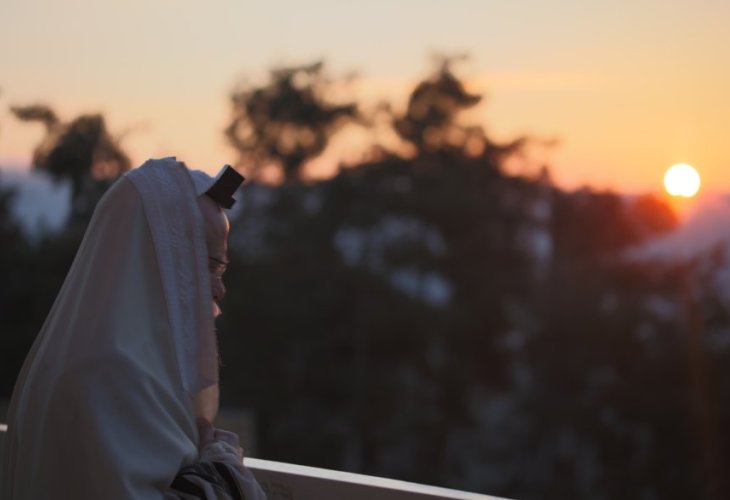Jewish Law
Finding Holiness in the 'Little Things'
In Judaism, nothing is mundane -- the potential for kedushah exists in every single aspect of life
 (Photo: shutterstock)
(Photo: shutterstock)You're looking for meaning in life; you want to know why you're here and what you should be doing. Awareness of the big picture is tremendously important. So is paying attention to the "little things" that we do every single day, because all those little things, done repeatedly, bring consciousness into our lives and mold us on an ongoing basis.
Following are several examples of "little things" we do that bring conscious awareness into even the "mundane" aspects of our lives. According to the Torah, nothing is mundane.
Left Shoe, Right Shoe
Question: If I can't find my right shoe, can I meanwhile put on my left shoe?
Answer: No, first find the right shoe and put it on.
The right shoe is always put on before the left one, even if the person is left-handed. As for shoelaces, one ties first the left shoe and then the right, as tefillin straps are bound on the left hand. A left-handed person, however, who places tefillin on the right hand and arm, ties first the laces of his right shoe.
Taking a Bath
Question: Can I first wash my body and then my head, if it's more convenient that way?
Answer: No, the head and face should be washed first, and only then the body, top-to-bottom, right side before left side. One should also dry oneself in this order.
Men should first wash the areas where tefillin are placed: first the place of the tefillin shel rosh, and then the place of the tefillin shel yad.
It is a mitzvah to wash one's entire body in warm or hot water on Friday afternoon before Shabbat and on the eves of festivals.
Don't Touch!
Question: Before washing my hands in the morning, which parts of the body should I be careful not to touch?
Answer: You should not touch the mouth, nose, ears, and eyes.
Receiving Kedushah
Question: After washing my hands before prayers or before a bread meal, what do I do with my hands?
Answer: After washing your hands and while making the brachah Al Netilat Yadayim, you should stretch out your palms as if to receive something (the kedushah--purity) and then raise them to opposite your face.
Head and Hair
Question: If I touch my hair without scratching my head, do I have to wash my hands?
Answer: No. Scratching the head or grooming the hair requires hand-washing, but merely touching it does not.

